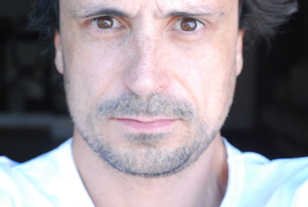Ethi-Something
Gustavo Vicente
Abstract
This is a narrative journey through my experience as a Portuguese theatregoer since the Nineties. It encapsulates different voices, from the personal to the more academic, in an inner dialogue where the affective dimension is left free to influence the tone and rhythm of the discourse, to interrupt and challenge the logic of argumentation, and to be recognized as a powerful force of knowledge and self-transformation.
I begin by addressing the recent socio-political changes in Portugal - especially since the breakdown of the dictatorship regime in 1974 –, and its effects in the way I grew out to look at performances today.
From that perspective, I will then confront the relativist standpoint of contemporary Western performing arts, where ethics seems to be increasingly seen as something inscrutable within the realm of the subjective, something about which no one risks a common understanding, something of something lost. In the wake of a postmodernity that has been casting a growing shadow over the construction of foreseeable futures, and that is becoming further apart of its political relevance.
I will conclude by directing my attention to the early signs that seems to be leading the performing arts’ practice to rehearse new ethical paradigms. Towards what can point beyond ourselves and to the possibility of a life together.
This is a narrative journey through my experience as a Portuguese theatregoer since the Nineties. It encapsulates different voices, from the personal to the more academic, in an inner dialogue where the affective dimension is left free to influence the tone and rhythm of the discourse, to interrupt and challenge the logic of argumentation, and to be recognized as a powerful force of knowledge and self-transformation.
I begin by addressing the recent socio-political changes in Portugal - especially since the breakdown of the dictatorship regime in 1974 –, and its effects in the way I grew out to look at performances today.
From that perspective, I will then confront the relativist standpoint of contemporary Western performing arts, where ethics seems to be increasingly seen as something inscrutable within the realm of the subjective, something about which no one risks a common understanding, something of something lost. In the wake of a postmodernity that has been casting a growing shadow over the construction of foreseeable futures, and that is becoming further apart of its political relevance.
I will conclude by directing my attention to the early signs that seems to be leading the performing arts’ practice to rehearse new ethical paradigms. Towards what can point beyond ourselves and to the possibility of a life together.
| etudesfeb2015vicente.pdf | |
| File Size: | 389 kb |
| File Type: | |


